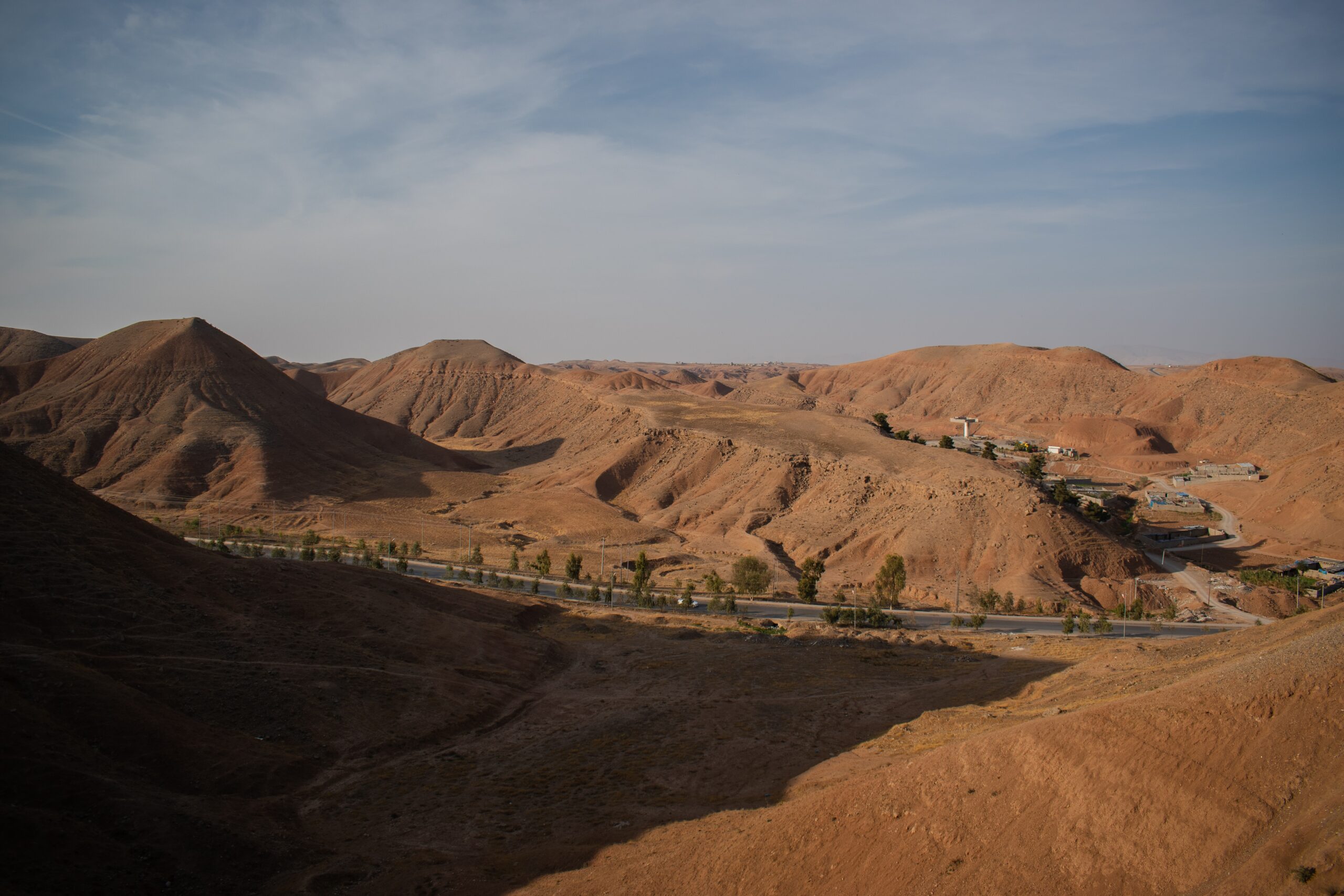The birthplace of civilization—Mesopotamia, the Garden of Eden, the Fertile Crescent—is turning to desert right before our very eyes.
In a recent New York Times article, Alissa J. Rubin and Bryan Denton report on climate change and the recent desertification of the region of the world that has been known for its lush landscape and ample water sources for centuries.
“Desertification” is a fancy term for land that is turning to desert. This land degradation can happen due to droughts, deforestation, or unsustainable agriculture, or some combination of these three, and it’s happening at a devastating rate in the Middle East.
David cries out at the beginning of Psalm 63, “You, God, are my God, earnestly I seek you; I thirst for you, my whole being longs for you, in a dry and parched land where there is no water.” As people disassemble their homes brick by brick to try to find a sustainable place to live, that same desperation of David resonates.
There are many contributing forces to the water crisis in the Middle East, including a “tug-of-war” over water similar to what is happening in the United States with the Colorado River.
When water—one of the very basic needs for survival—is threatened, every other area of society suffers.
“Here in Iraq, the fallout is everywhere,” reports Rubin, “fraying society, spurring deadly clashes between villages, displacing thousands of people every year, emboldening extremists and leaving ever more land looking like a barren moonscape.”
When water disappears, disease flourishes, farmland disappears, and people grow afraid and flee the land they come from. According to climate scientists, the Middle East is a dire warning to the rest of the globe, to make dramatic changes now.
The Prophets of Ancient Israel Speak Hope to the Modern Middle East, Even Now
The prophets of the Old Testament offer a message that is intended to wake up an apathetic generation, warn of the consequences of greed and resource mismanagement, and cast a vision of future hope.
These prophets lived in the Fertile Crescent. Their words speak universally to any age that has battled the tendencies of the human spirit to hoard power and wealth, look out for one’s own instead of the good of others, and lose sight of the truths of God. In each age, the “golden rule” to love your neighbor as you love yourself remains the standard by which societies thrive. But each age needs to discern for itself what it looks like to love your neighbor, specifically.
In our age, the prophets shine God’s light on the global climate crisis. The prophetic voice speaks for God and calls people to repentance, which means to turn around. We need to do a 180 on our behavior in order to right this ship, says God.
That looks like the body of Christ advocating for sustainable agricultural practices, water conservation, biodiversity preservation, reforestation, transitioning to renewable energy, and more practices that look after and care for the people who are most directly impacted by climate change.
And when you do these things, says God, I will bless you.
In the midst of dire forecasts and urgent demands for action, the Christian message of repentance and hope of restoration can fuel efforts to care for creation.
The prophet Isaiah wrote to the people of Israel dwelling in the Fertile Crescent thousands of years ago:
This is what the Lord says—
he who made you, who formed you in the womb,
and who will help you:
Do not be afraid, Jacob, my servant,
Jeshurun, whom I have chosen.
For I will pour water on the thirsty land,
and streams on the dry ground;
I will pour out my Spirit on your offspring,
and my blessing on your descendants.
They will spring up like grass in a meadow,
like poplar trees by flowing streams.
Isaiah 44:2-4 NIV
God is always faithful, even when we are unfaithful, even when we wander off the path away from love and kindness toward insecurity, selfishness, and arrogance, even when we do what is right in our own eyes instead of seeking the wisdom and discernment of the good, good Father.
God promises restoration, not just for Israel in the ancient Middle East. Not just for Christians in the time of Jesus. God promises restoration for the entire world. The story of our Earth does not end in desertification; it ends in restoration:
“Then the angel showed me the river of the water of life, as clear as crystal, flowing from the throne of God and of the Lamb down the middle of the great street of the city. On each side of the river stood the tree of life, bearing twelve crops of fruit, yielding its fruit every month. And the leaves of the tree are for the healing of the nations” (Revelation 22:1-2 NIV).
That’s for everyone. May we pray for and actively work to repent from wasteful management of our God-given planet for the restoration and healing of the nations, including the parched land of the Middle East.




 Copyright
2024
Root and Vine
Copyright
2024
Root and Vine